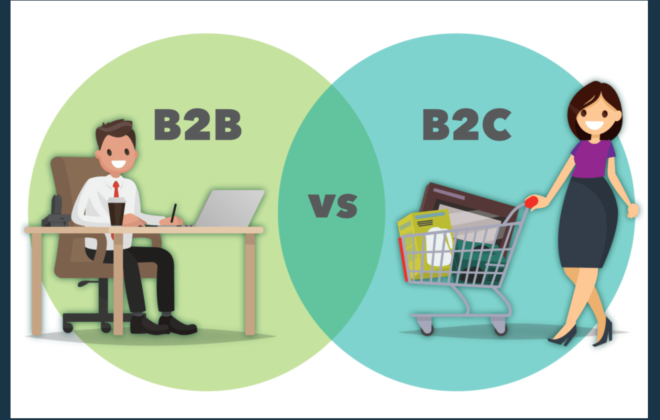
The Best FinTech Development Technology Stack in 2022
GlobeNewsWire suggests that the FinTech market will reach $305 billion by 2025. Along with that, the consumer adoption rate was 75% for money transfers and payments worldwide.
The rise in FinTech definitely calls for a close examination of what makes it possible. Technology is a major driver, some would say the only driver, in digitizing finance. FinTech app development focuses on creating digital solutions that enable people to easily access finance.
Exemplary FinTech applications, therefore, require a technology stack that can meet each project’s complex requirements. Technology stack examples include a combination of programming languages, frameworks, database systems, containers, version control, and all the other technical components involved in developing the application.
This article will highlight the key technologies that simplify FinTech application development. We will focus primarily on programming languages, frameworks, and database systems as they constitute the most significant part of the technology stack.
Read More: How To Use Python for FinTech Applications
The Best Technology Stack for FinTech Products
Several companies use similar technologies, but only a few companies have the same technology stack for FinTech app development solutions. Each project has different requirements, and therefore, the technology stack will be different.
In recent times, a few technologies have become popular in FinTech due to their versatility, diversification, and features. We will highlight those technologies that are common to several FinTech app development companies and their clients.
Programming Languages
A programming language is a key driver for the technical success of FinTech applications. FinTech products are complex – they require scalability and security. Here are the top programming languages that are becoming highly popular in the FinTech landscape –
- Python
- Python is the most popular programming language. It is a scalable and dynamic language that offers hundreds of use cases to FinTech app developers. It is useful in trade management, pricing, risk management, investment, and more.
- Python works seamlessly with data science – it has libraries like NumPy, SciPy, Pyalgotrade, Pyrisk, Pynance, Pyfolio, and several others. These libraries enable developers to integrate data science and Artificial Intelligence into FinTech solutions.
- Java
- One of the oldest and most widely used programming languages, Java offers exceptional development capabilities to the best FinTech app developers. The Java Virtual Machine enables creating scalable and cross-platform FinTech products with ease.
- In terms of security for FinTech products, Java provides the utmost levels of data protection. It has a powerful security manager and runtime constraints. It offers secure solutions in chatbot development, fraud detection, trading & investment, and mobile wallets.
- Ruby
- When it was its day, companies used to hire FinTech developers with expertise in no other language but Ruby. The simple, dynamic, and interactive programming language offered simplified development to FinTech companies. It is useful in creating asset management solutions, e-wallets, digital payments applications, and financial dashboards.
- Companies offering FinTech app development services have a team of Ruby (and Ruby on Rails) developers. The biggest advantage is the simplicity, which speeds up the development process for FinTech products.
Frameworks
While programming languages are important for writing the code, frameworks provide the structure and environment to create the application. Whether it’s for web or FinTech mobile app development, frameworks are the building blocks of any application. Here are the three most popular frameworks for FinTech solutions:-
- Ruby on Rails
- Also known as “the startup technology,” Ruby on Rails is the choice of framework for quick MVP development. The framework, along with the assistance of the best software development company, reduces the development time by 25% to 40%.
- With the ever-increasing competition in FinTech, companies need a technology that can offer them the best of speed, flexibility, and scalability. Ruby on Rails has all these three advantages. It powers apps like Coinbase and Chime.
- Django
- Powered by Python, Django is a primary framework for FinTech app development services. The framework offers an amazing interface and capabilities to develop complex FinTech solutions. Robinhood, one of the biggest commission-free stock trading apps, uses Django in its technology stack.
- Django offers packages like the Django REST API, Sentry, and more to simplify the process of application development. The framework also offers capabilities for numerical computation, analysis, and scientific computing to integrate AI and ML in FinTech applications.
- Spring
- The Java-based framework offers amazing features to create FinTech applications. It simplifies complex project requirements by offering ready-to-use components. Spring provides a robust mechanism for authentication and authorization – a key necessity for FinTech products.
- Spring projects evolve actively as they revolve around the Java ecosystem. The framework offers scalable app development, ensuring FinTech companies stay on top of their game. Spring receives regular updates, making it a trending framework for FinTech development.
Databases
The choice of database is crucial for FinTech solutions. While security is a key factor to assess when it comes to databases, companies also need high performance. Here are the top 3 most popular databases for FinTech applications –
- PostgreSQL
- The database offers rapid responses to queries. It is the most used database for FinTech applications. It has amazing analytical capabilities along with the support of numerous programming languages. Many of the major FinTech companies use PostgreSQL, including Robinhood, Revoult, N26, and many more. It provides data masking and transparent data encryption for better security of confidential information in FinTech apps.
- The database offers rapid responses to queries. It is the most used database for FinTech applications. It has amazing analytical capabilities along with the support of numerous programming languages. Many of the major FinTech companies use PostgreSQL, including Robinhood, Revoult, N26, and many more. It provides data masking and transparent data encryption for better security of confidential information in FinTech apps.
- MySQL
- Another popular database that companies use is MySQL. It is a high-performance database that offers cross-platform functionality. Because of its complex algorithms, the database is highly secure. It has a structured format that simplifies data storage for FinTech applications. MySQL offers stringent data security measures to companies.
- Another popular database that companies use is MySQL. It is a high-performance database that offers cross-platform functionality. Because of its complex algorithms, the database is highly secure. It has a structured format that simplifies data storage for FinTech applications. MySQL offers stringent data security measures to companies.
- MongoDB
- To create a highly scalable application, MongoDB is the primary component. It is fast and provides amazing query responses. Because of its schema-less nature, it eliminates the need for a schema. The database derives document-based data models and stores data in the form of Binary JSON and more. It offers faster database access, marking itself as a suitable database for FinTech products.
Read More: Top 7 Global FinTech Trends in 2022
Wrapping Up
While there are hundreds of technologies out there that are suitable for FinTech applications, some are better suited than others. However, what technology to use depends on the project requirements. The above technologies are some of the most popular ones that companies use across the globe, and that’s why we understand the need to discuss them.
Technology implementation for FinTech software development requires experts, and BoTree Technologies, a leading Enterprise software development company, has been in the FinTech industry for 10+ years with experts who have served over 200 clients.
Contact us today for a FREE CONSULTATION on your next FinTech project.




